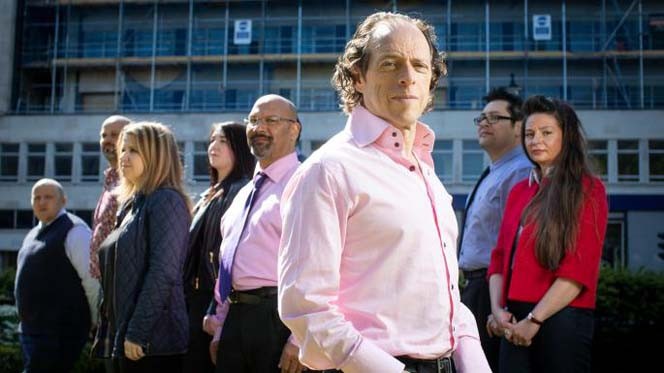

Dear All,
One of the richest men in Britain recently handed over control of his company to his employees. His logic was that he is wealthy enough anyway and his employees "not only deserve it but know the business better than anybody else".
Julian Richer handed over control of his company, Richer Sounds, by selling 60 percent of his shares to an employee-owned trust for around 9 million pounds, and then giving back around a third of that amount to employees in payouts of 1000 pounds for every year they had worked in his hi-fi stores (these payouts totalled around 3.5 million pounds). He said he didn’t want to just sell his company to "the highest bidder" and he wanted to have "a clear succession plan" as his wife "isn’t madly commercial" and they have no children. Another factor was his age: he is 60, which he says is the age his father died at.
Richer founded his business 40 years ago, and his approach to running a successful business is markedly different to that of most modern employers: he believes that a happy and loyal workforce is key to success.
This is in stark contrast to the existing practice of most businesses and corporations where employees are constantly made to feel insecure and regularly reminded of how very dispensable they are. ‘Hot desking’ (using whichever desk is available anywhere on the premises rather than having a space and desk to call your own) has become the norm in most organisations on the basis that it saves money. It is a physical reminder of how companies don’t want employees to get too cosy or well settled or feel any sense of ownership for the organisation.
Current corporate thinking is that long-term (loyal) employees as overly expensive or ‘bad for the business’ and so they tend to try and replace or supercede them with newer, younger and more inexperienced staffers. They also give mostly short-term rather than permanent contracts, keeping staff feeling insecure as they are unsure if these will be renewed.
Also, many large organisations have recently started outsourcing departments -- even key departments like Human Resources and Payroll which often require detailed knowledge of the organisation and what its ethos is -- and this all makes the organisation’s identity less coherent.
The era of being loyal to an organisation seems, strangely, to be a thing of the past. The reason for this is probably that staff loyalty and satisfaction is an intangible factor that is missed out in the management consultant type formula of calculating profits and formulating new and ‘better’ business plans (even though organisations then spend lots of money on surveys to ‘measure staff satisfaction’).
In this sort of an environment Julian Richer’s actions are particularly laudable. He has followed an old-fashioned pattern of caring for employees and treating them as part of a ‘business family’ (in Britain John Lewis is another store that gives its employees a stake in the company and a share of the profits).
Richer outlined this thinking in his book The Ethical Capitalist: How to Make Business Work Better for Society, in which he says that capitalism cannot be unbridled because it needs to be ‘responsible’ rather than purely selfish. He thinks that entrepreneurship and innovative business ideas need to be encouraged but also properly monitored and regulated. To this end, he is also financing a watchdog organisation called Taxwatch, a non-profit that scrutinises the finances of multinational companies.
Richer’s views and actions challenge the greed-is-good mantra of the 20th century capitalism and present an alternative -- and socially responsible -- model for a successful business. And such an alternative model is what nations now need to adopt in order to reduce the rapidly widening gap between the rich and the poor, and also to incorporate ethical principles properly into business practice. The polarised argument of ‘capitalism good, socialism bad’ needs to be abandoned and a new model of ethical capitalism is perhaps what needs to be thought out and intelligently formulated.
The age of corporate greed needs to become a thing of the past, as do the yuppie work-all-hours-rake-in-big-bonuses type of corporate employees, who see themselves as "masters of the universe" -- as the novelist Tom Wolfe put it.
Richer’s recent decision to hand over control of his company is also important because it shows that it is possible to assess just how much wealth is ‘enough’ and that money is not amassed just for the sake of money. An approach such as his makes society richer -- and fairer.
Best wishes,